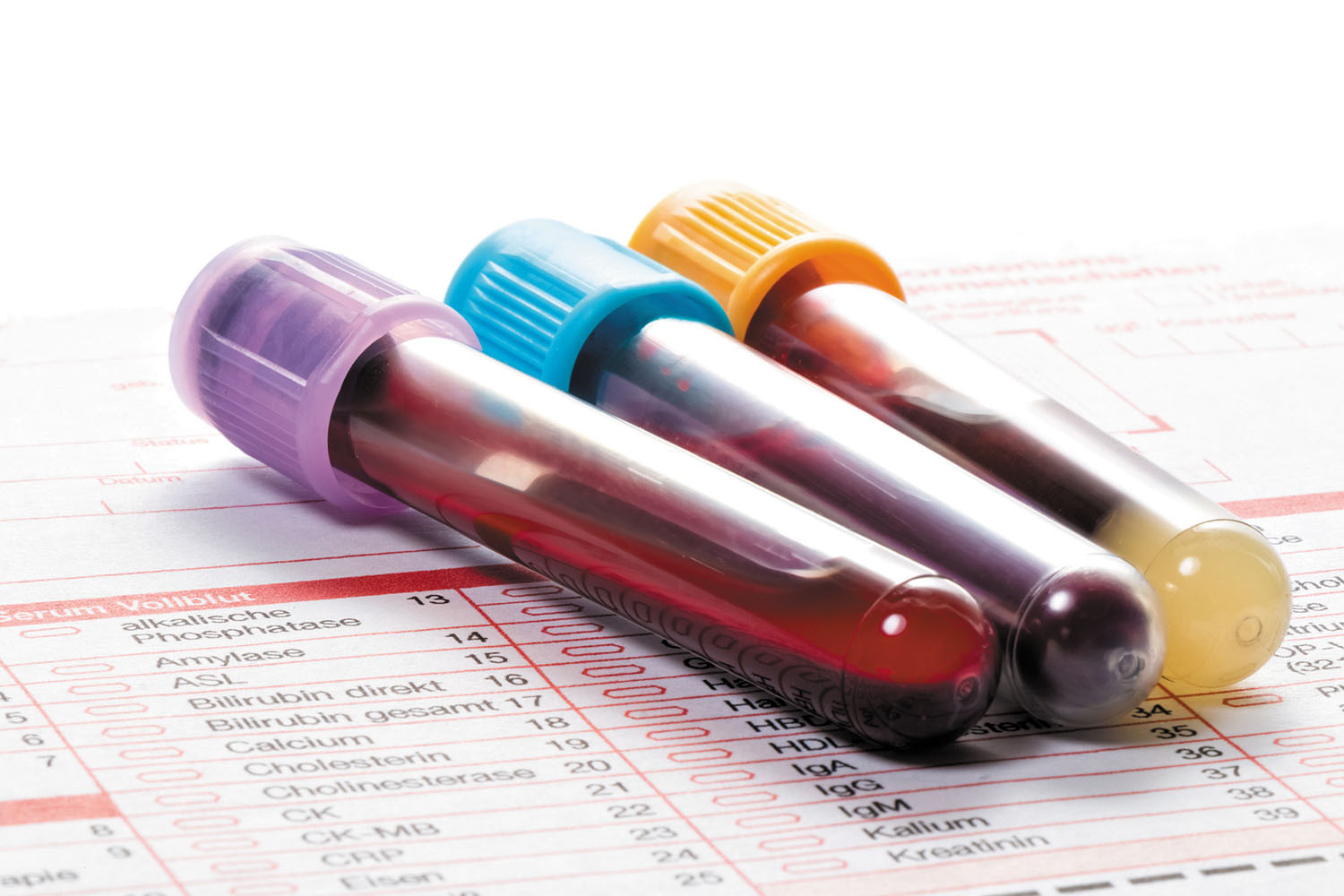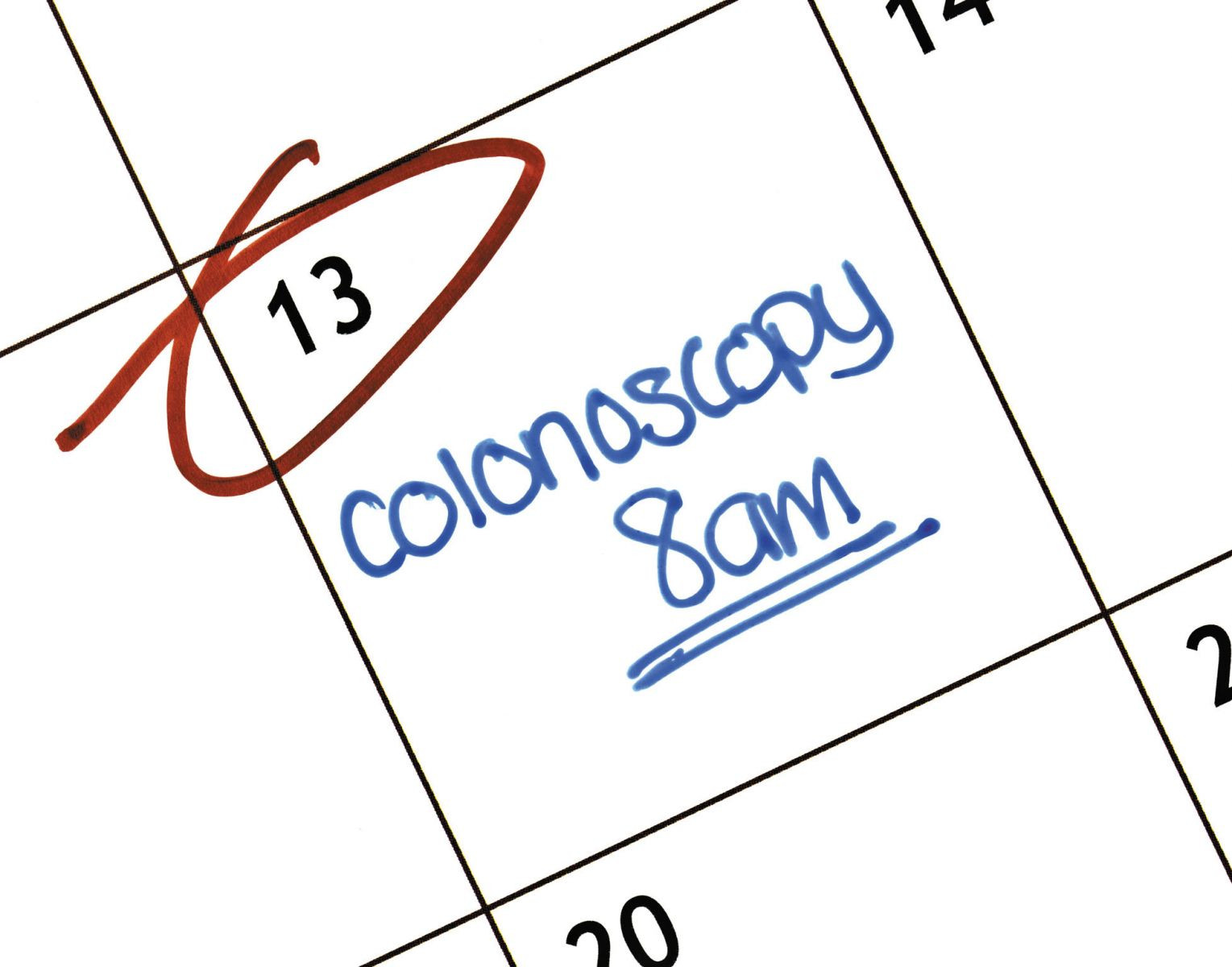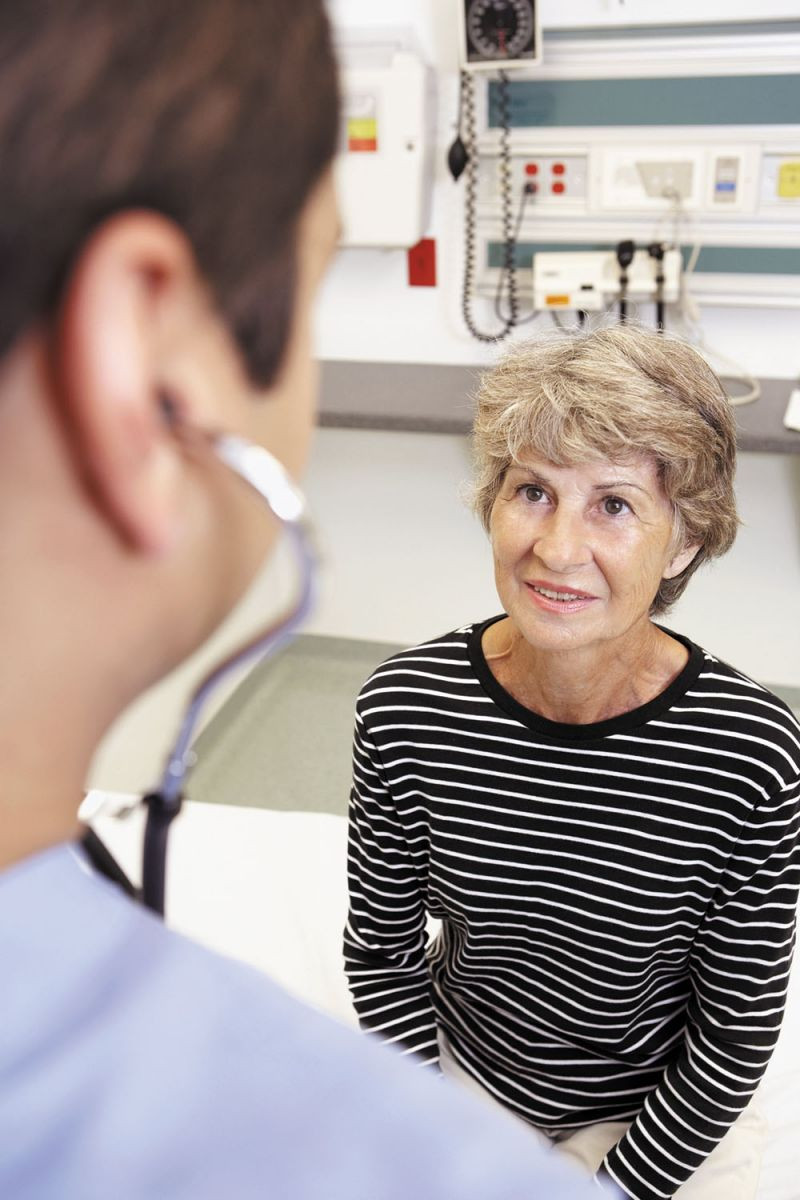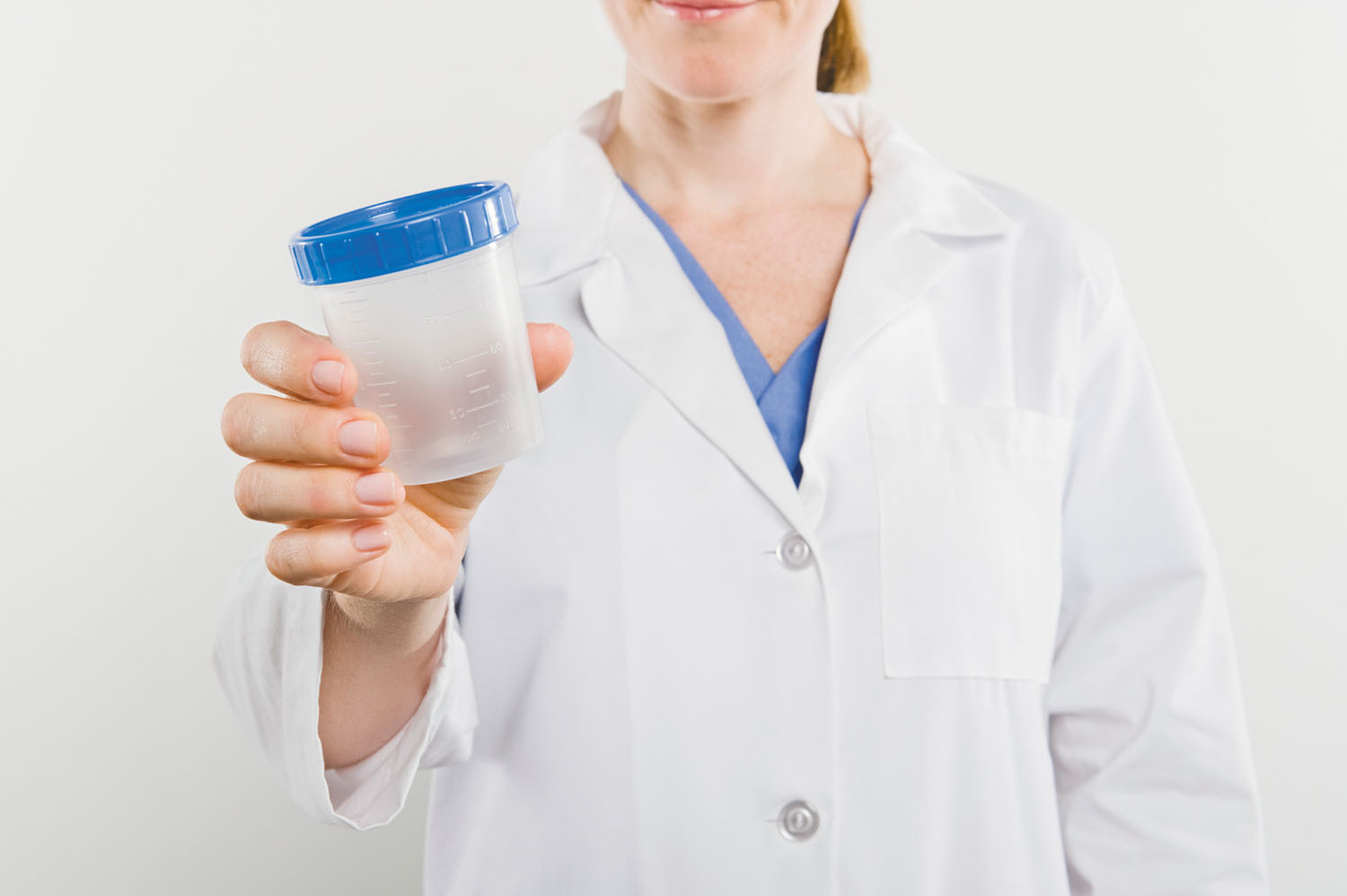
Driving with arthritis pain: Stay comfortable — and safe — behind the wheel

Daily cup of coffee may prevent afib recurrence

Gene-editing therapy lowers harmful blood fats in early study

What is EMDR therapy, and who can it help?

GLP-1 drugs versus bariatric surgery for treating obesity

Two dumbbells, three exercises, and 10 minutes

Easing the emotional burden of IBS

Modify your push-ups to meet your fitness level

What is long QT syndrome?

Stroke survivors may benefit from very low LDL levels
Medical Tests & Procedures Archive
Articles
A new approach to cancer diagnosis
Liquid biopsies may offer a less invasive alternative than a traditional biopsy.
Image: © fotoquique/Getty Images
A tissue biopsy is the standard test for identifying cancer. Your medical team will use needles or other devices to capture pieces of actual tumor to see if it's malignant or benign. But another approach, called a liquid biopsy, is less invasive and may provide a diagnosis when a biopsy doesn't.
This test uses a person's blood to look for signs of cells or mutated DNA that a tumor has shed into the bloodstream. "By sampling DNA or circulating tumor cells in the blood, we can predict and monitor responses to cancer treatments without subjecting patients to invasive biopsy procedures — and perhaps detect cancer early, before it has had a chance to spread," says Dr. David Miyamoto, assistant professor of radiation oncology at Harvard Medical School.
Screening can often prevent colon cancer
Research we're watching
Image: © Catherine Lane/Getty Images
March is National Colorectal Cancer Awareness month. Have you been screened? Colon cancer is the second leading cause of cancer deaths in the United States, but is also highly preventable through recommended screenings. These screenings enable doctors to spot precancerous lesions that can lead to colon cancer and remove them before they become a problem. Screenings can also find cancers early, when they are most treatable. All people ages 50 to 75 should get recommended colon cancer screenings. Some people should start getting screened earlier if they have certain risk factors for colon cancer, including a family history, a personal history of inflammatory bowel disease (such as Crohn's disease or ulcerative colitis), or a genetic condition that makes colon cancer more likely (such as familial adenomatous polyposis).
There are several tests used for colon cancer screening, including colonoscopy, which uses a device to examine the full length of the colon and rectum; stool tests; flexible sigmoidoscopy, which uses a device to examine a portion of the colon; and CT colonography, a scanning technique that produces images of the colon that are examined by the doctor.
Insider tips to maximize your doctor visit
Here's what Harvard physicians advise you to do at your next appointment.
You know the routine: you're waiting in the exam room, and your doctor comes in for what seems like a very quick visit before leaving to see the next person. You're left feeling that you didn't ask all of your questions or get a good understanding of your treatment plan. What happened?
"We're under incredible pressure, and we're scrutinized to be sure we're seeing enough patients," explains geriatrician Dr. Suzanne Salamon, an assistant professor at Harvard Medical School. "We don't have many minutes, and yet we have to go over each person's medical issues, medications, and even end-of-life issues. That doesn't leave a lot of time to talk."
Opening up arteries to treat stable angina: Just a sham?
A study questioned the benefit of stents for some heart patients. What does this mean for people with chest pain?
Last fall, many news outlets highlighted a study suggesting that a common heart procedure — inserting a stent to open a narrowed heart artery — was no better than a sham procedure (see "Stent vs. sham: A short summary"). But the big picture isn't quite so simple.
For instance, it's worth noting that six weeks prior to undergoing the procedures, all of the 200 people who completed the study were prescribed increasing doses of heart medications. Referred to as optimal medical therapy, this approach is a proven strategy for treating chest pain brought on by physical activity or emotional stress that promptly goes away with rest or nitroglycerin (so-called stable angina).
Stem cells to repair heart damage? Not so fast
Dozens of clinics offer unproven stem cell therapies for heart failure. Despite steady progress, this experimental treatment is not ready for prime time.
Illustration: Scott Leighton
A heart attack cuts off blood flow to part of the heart's muscle, usually causing lasting damage. Over time — especially in people with repeat heart attacks — the resulting scar tissue can hinder the heart's ability to function normally, leading to heart failure.
For nearly two decades, scientists have studied how stem cells might repair a damaged heart and restore its function. These unique cells, which have the potential to grow into a variety of heart cell types, can be made from other cells (see "What's new in cardiac regeneration?").
A more precise approach to fighting cancer
Precision medicine offers a personalized approach for prevention and treatment of cancer and other diseases.
Image: © Pogotskiy/Thinkstock
If you have a stomachache or cold, you go to the pharmacy and grab the same remedy that everyone else uses, and it often works. But is that always the best approach? Your reaction to an infection may be quite different from someone else's, so perhaps you need a treatment designed just for you and your ailment.
That's the philosophy behind precision medicine (sometimes referred to as personalized medicine), an emerging approach to prevention and treatment that takes into account a person's genes, environment, and lifestyle and eliminates the one-size-fits-all approach to health care.
MRI is safe for most people with pacemakers and defibrillators
In the journals
Magnetic resonance imaging (MRI) has long been considered dangerous for people who have electronic heart devices like pacemakers and defibrillators implanted in their bodies. Now, a study published online Aug. 14, 2017, by the Journal of Clinical Electrophysiology suggests the scans are safe for most people with these devices.
Until recently, most devices were not FDA-approved for MRI. They had been considered risky because it was feared that the high-strength magnetic fields used for the scanning could disrupt a pacemaker's or defibrillator's circuits. Yet, when researchers reviewed 212 MRI examinations involving 178 patients with these nonapproved devices, they did not find a single problem with how they functioned. The researchers concluded that MRI is safe for someone with a device implanted after 2000, as long as the device is checked before and after the procedure and its pacing function is monitored during the scan.
Rapid urine test could reduce unnecessary antibiotic use
Research we're watching
Image: © moodboard/Thinkstock
A new test might help doctors better treat patients with urinary tract infections, according to a study published in the Oct. 4, 2017, issue of Science Translational Medicine. These infections prompt some eight million doctor visits each year, and doctors often prescribe antibiotics to treat the condition. However, sometimes the bacteria they are attempting to treat are resistant to first-line antibiotics. The delay caused by the ineffective medication can, in some cases, cause the patient's condition to worsen and lead to complications. To eliminate this antibiotic guesswork, researchers developed a new quick-acting antimicrobial susceptibility test that not only tells the doctor within 30 minutes whether the patient has a urinary tract infection, but also what type of bacteria caused it and what drugs will best treat it. The test can also quickly identify cases where antibiotics aren't needed at all, preventing overuse of antibiotics, which can promote resistance. The same type of rapid testing, might eventually be of use in identifying the best anti-biotics for other types of bacterial infections as well.
The Couric-Jolie effect: When celebrities share their medical experiences
Celebrities can certainly help raise awareness of health issues, but these stories can't replace medical advice based on your personal situation.
People at low risk for heart trouble may not need routine ECGs
In the journals
A study published in the September 2017 issue of JAMA Internal Medicine found that doctors may prescribe an electrocardiogram (ECG) as part of an annual health examination even for people at low risk for heart disease. The study looked at about 3.6 million people with no history of heart problems, like heart attack, high blood pressure, or diabetes, who had at least one routine exam over a five-year period. Of these people, 21.5% had an ECG within 30 days after their exam.
The researchers found that those who got the ECG were five times more likely to get further cardiology testing that not only increased out-of-pocket costs, but also raised their risks of radiation exposure and complications from additional procedures. The addition of an ECG did not appear to offer additional benefits, as the rates of death, heart-related hospitalizations, and bypass surgery were equally low in both the ECG and non-ECG groups at the one-year follow-up.

Driving with arthritis pain: Stay comfortable — and safe — behind the wheel

Daily cup of coffee may prevent afib recurrence

Gene-editing therapy lowers harmful blood fats in early study

What is EMDR therapy, and who can it help?

GLP-1 drugs versus bariatric surgery for treating obesity

Two dumbbells, three exercises, and 10 minutes

Easing the emotional burden of IBS

Modify your push-ups to meet your fitness level

What is long QT syndrome?

Stroke survivors may benefit from very low LDL levels
Free Healthbeat Signup
Get the latest in health news delivered to your inbox!
Sign Up










